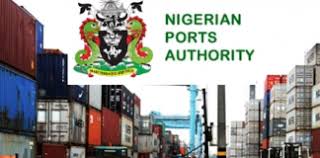The Urgent Need for a Robust National Policy to Combat Marine Debris in Nigeria
The Nigerian maritime sector is facing a growing crisis: the escalating problem of marine debris. This pervasive pollution, comprising various discarded materials, poses a significant threat to the health of Nigeria’s oceans and waterways, impacting navigation, coastal communities, and marine life. Stakeholders, including the Nigerian Ports Authority (NPA), Nigerian Shippers Council (NSC), and the National Inland Waterways Authority (NIWA), have highlighted the urgent need for a comprehensive national policy framework to address this multifaceted challenge. The current situation demands a concerted and collaborative effort to mitigate the detrimental effects of marine litter and safeguard the future of Nigeria’s valuable marine resources.
Marine debris presents a multitude of challenges for the Nigerian maritime sector. It impedes navigational safety by obstructing channels and creating hazards for vessels. Ports and harbor operations are also affected, as debris can clog infrastructure and disrupt efficient cargo handling. Beyond the operational impacts, marine litter significantly degrades the environment. Coastlines become polluted, impacting tourism and diminishing the aesthetic value of coastal areas. The livelihoods of coastal communities reliant on fishing and tourism are threatened, and the health of residents is jeopardized by contaminated waters and shorelines. Furthermore, marine biodiversity suffers greatly as marine animals become entangled in debris or ingest it, leading to injury, starvation, and death. The cumulative impact of these issues necessitates a decisive and comprehensive response.
The Nigerian Ports Authority (NPA), as a key custodian of the nation’s seaports, has recognized the gravity of the marine debris problem and is committed to addressing it through various initiatives. The NPA emphasizes compliance with international conventions, particularly the International Convention for the Prevention of Pollution from Ships (MARPOL 73/78) Annex V, which addresses garbage disposal from vessels. Port reception facilities at all major Nigerian ports are regulated and operated to ensure proper handling and disposal of ship-generated waste, including plastics, food waste, and hazardous materials. This proactive approach aims to prevent illegal disposal of waste into the marine environment and ensures adherence to national and international environmental standards.
Beyond waste reception, the NPA actively engages in cleanup activities within and around port areas. Regularly scheduled exercises focus on removing debris from channels, berths, and quay aprons, mitigating the impact of litter on marine life, port infrastructure, and vessel operations. These efforts reflect the NPA’s dedication to maintaining a clean and functional marine environment. However, tackling the marine debris problem effectively requires a broader, national strategy involving all stakeholders.
The Nigerian Shippers Council (NSC) and the National Inland Waterways Authority (NIWA) also play crucial roles in addressing the marine debris issue. The NSC emphasizes the importance of clear waterways for safe and efficient navigation, particularly on inland waterways where debris and shipwrecks can pose significant obstacles. NIWA, responsible for managing inland waterways, stresses the need for public awareness and education, particularly within coastal communities. Engaging local residents in responsible waste management practices is essential to preventing further pollution and promoting sustainable practices.
A comprehensive national policy framework must encompass several key aspects to effectively combat marine debris. First, it should establish clear regulations and enforcement mechanisms to prevent illegal dumping and promote responsible waste disposal practices. Second, the policy should promote the development and implementation of waste management infrastructure, including recycling facilities and proper disposal sites. Third, public awareness campaigns are essential to educate individuals and communities about the impact of marine debris and encourage behavioral changes. Fourth, international collaboration and knowledge sharing are vital for addressing a transboundary issue like marine pollution. Finally, research and monitoring are crucial to understand the sources, distribution, and impacts of marine debris, informing effective solutions and tracking progress.
The escalating marine debris problem in Nigeria demands a robust and comprehensive national policy framework to protect the nation’s marine environment and ensure the sustainability of its maritime sector. Collaboration among government agencies, private sector stakeholders, and coastal communities is essential to implement effective solutions and achieve lasting results. A concerted effort is needed to mitigate the detrimental effects of marine litter, preserve biodiversity, and safeguard the future of Nigeria’s oceans and waterways. The call for a strengthened national policy framework is not merely a suggestion; it is a critical imperative to address a growing crisis that threatens the ecological and economic well-being of the nation.














